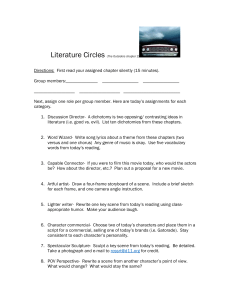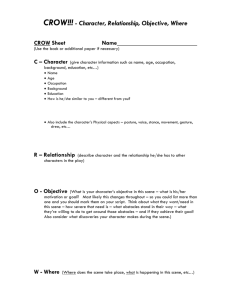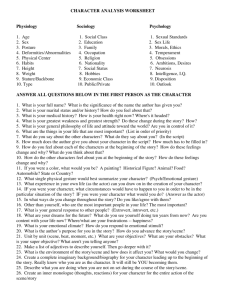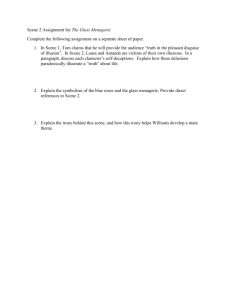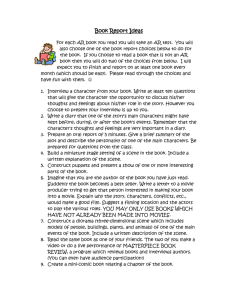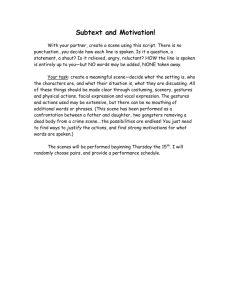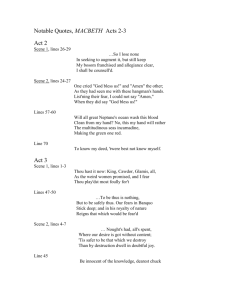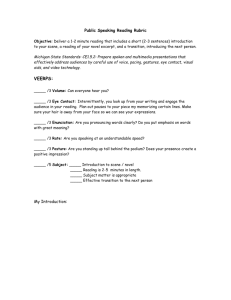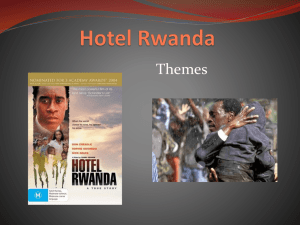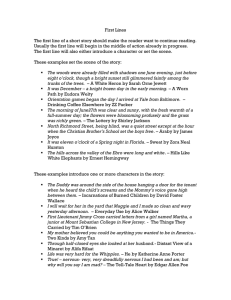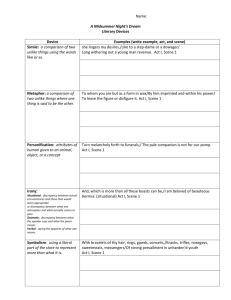Speech and Drama Vocabulary List
advertisement
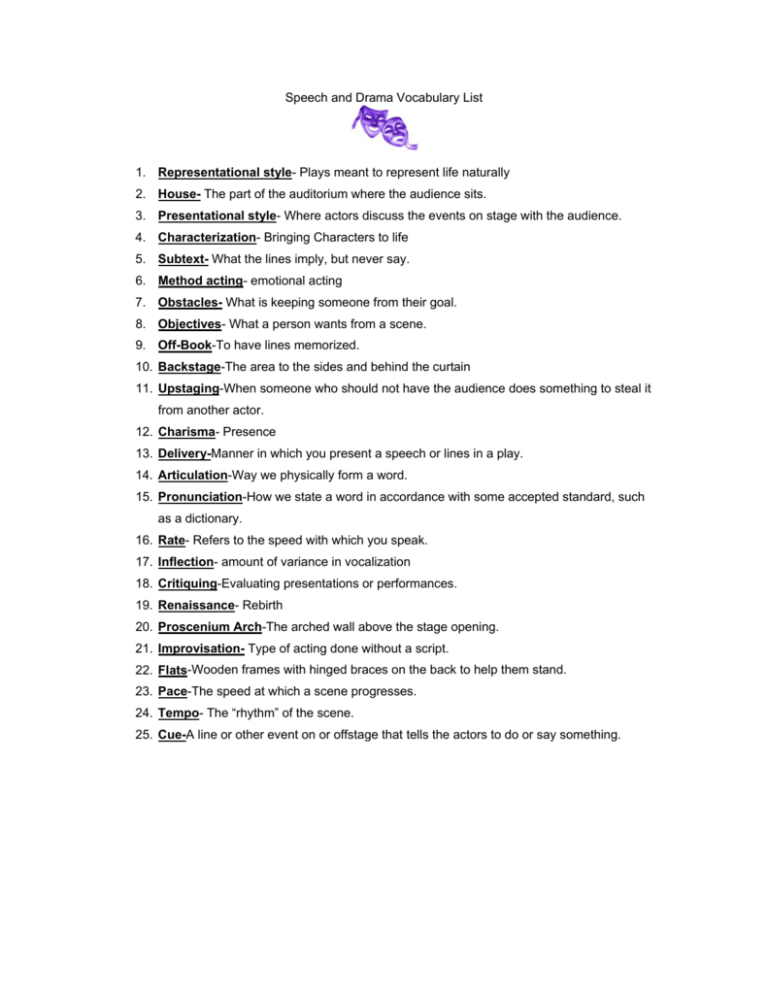
Speech and Drama Vocabulary List 1. Representational style- Plays meant to represent life naturally 2. House- The part of the auditorium where the audience sits. 3. Presentational style- Where actors discuss the events on stage with the audience. 4. Characterization- Bringing Characters to life 5. Subtext- What the lines imply, but never say. 6. Method acting- emotional acting 7. Obstacles- What is keeping someone from their goal. 8. Objectives- What a person wants from a scene. 9. Off-Book-To have lines memorized. 10. Backstage-The area to the sides and behind the curtain 11. Upstaging-When someone who should not have the audience does something to steal it from another actor. 12. Charisma- Presence 13. Delivery-Manner in which you present a speech or lines in a play. 14. Articulation-Way we physically form a word. 15. Pronunciation-How we state a word in accordance with some accepted standard, such as a dictionary. 16. Rate- Refers to the speed with which you speak. 17. Inflection- amount of variance in vocalization 18. Critiquing-Evaluating presentations or performances. 19. Renaissance- Rebirth 20. Proscenium Arch-The arched wall above the stage opening. 21. Improvisation- Type of acting done without a script. 22. Flats-Wooden frames with hinged braces on the back to help them stand. 23. Pace-The speed at which a scene progresses. 24. Tempo- The “rhythm” of the scene. 25. Cue-A line or other event on or offstage that tells the actors to do or say something.

